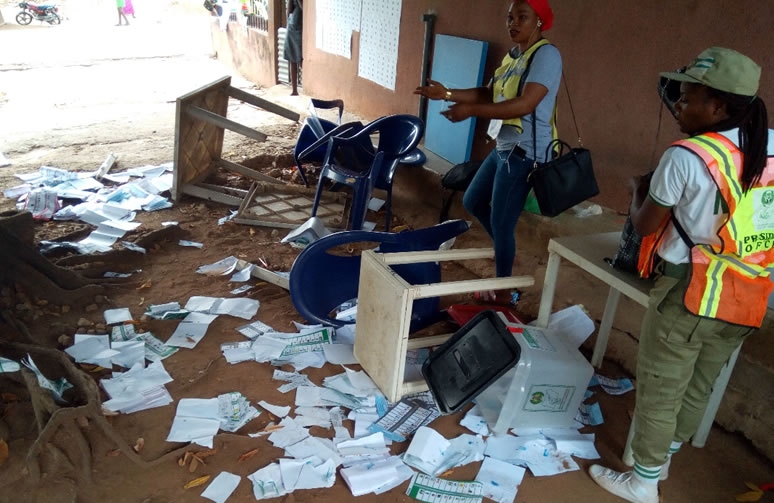By Obinna Ejianya (9News Nigeria – Melbourne, Australia)
Nigeria, a country blessed with abundant natural resources and a large, youthful population, should be a shining example of prosperity and progress, an ‘El Dorado’ on the African continent. Instead, it has become a cautionary tale of how rampant corruption, mismanagement, and a lack of good governance can cripple a nation.
Nigeria’s predicament is that of a deliberately perpetrated ‘vicious cycle’ malaise, orchestrated and sustained by politicians whose moral compass has been corrupted by insatiable greed. They are worse than demonic vipers. Despite Nigeria’s abundant natural and human resources, mismanagement and unbridled greed have kept the country in a deplorable, pitiable state, earning it the infamous moniker of “the poverty capital of the world.”
The leaders are, in simple terms, callously wicked, devoid of any compassion and empathy for the suffering of those they are meant to serve for their welfare. Even in the face of stringent hardship, the leaders are siphoning public funds to foreign accounts, converting public assets to themselves, their families, and cronies. They squander the scarce resources on their lusts and greed, spending extravagantly for themselves, their families, and their cronies even with loaned funds.
The Vicious Cycle of Mismanagement in Nigeria
This malicious cycle of mismanagement and corruption perpetuates poverty, insecurity, and the concentration of power in the hands of a few self-serving politicians. The more the people are deprived, impoverished, and suffocated in hardship, the more they are left with no other choice than to sing the praises of those who cause their woes, in anticipation of palliative succor that never actually comes.

Manipulation of the Electoral Process
The cycle begins with election manipulation and rigging. Politicians, driven by greed and self-interest, exploit desperate and deprived electorates, using meager monetary handouts and other inducements to secure votes instead of addressing the root causes of poverty. These starving citizens, deliberately impoverished by the same individuals perpetuating this cycle, become pawns in a game of electoral manipulation.
Deprived and desperate electorates, rendered vulnerable by weaponized hardship and hunger are used in whatever way the players choose, becoming tools to secure support and electoral victories in the coming elections.
Mismanagement of Public Funds – ‘Federal Allocation’
Mismanagement of funds occurs at all levels of government, from the federal presidency to state governors. The presidency, wielding significant power due to its control over funds, uses this leverage to influence and reward those who support its agenda.
The president shares money with governors in what is known as “Federal Allocation,” and shares with legislators, awarding inflated contracts among themselves. The system allows the squander of public funds with reckless abandon, whereas the average Nigerian worker earns less than $50 as a monthly salary.
This pattern of disbursement of funds and federal favors extends to the governors, who replicate the same mismanagement in their states. As the proverb goes, “When a mother goat is eating the grass, the baby goat is watching her and learning how to eat grass.” Similarly, “When the head is dead, the whole body gets rotten.” Governors receive substantial funds from the federal government, which they use to empower and enrich themselves.
The State governors also exert significant control over the State House of Assembly, the judiciary, local governments, and traditional rulers, and use the so-called “allocation” money to buy their loyalty. This creates a culture of “see nothing, say nothing” or, more accurately, “You know you can’t beat them, so you better join them.”
This also breeds one more culture of “it’s our turn to loot” and “if it’s our own thief, then let him continue as he wants.” Maladministration is entrenched at every level, leaving the citizens to suffer and engage in various forms of criminality to survive.
Perpetuation of Power and Looting
Election “winners,” even those lacking genuine leadership qualities, exploit the system to maintain their grip on power. They use public funds to buy support through patronage, manipulation, and propaganda, prioritizing personal gain over public service and development. Instead of investing in the country’s infrastructure and economy, they squander resources on appeasing their supporters, perpetuating a cycle of corruption and neglect.
As the cycle continues, public funds are looted, and the leader plants stooges to cover their tracks, preparing for the next electoral victory. The people continue to suffer from a poor economy, bad infrastructure, corruption, insecurity, and hunger.
These individuals will never demand or question bad governance and policies, merely complaining but failing to oppose or challenge those responsible for their woes.
Brain Drain and Societal Decay
The consequences of this mismanagement are dire. Nigeria has some of the worst health and education outcomes in the world, with high child mortality rates and a crumbling public school system. This neglect of essential public services condemns millions of Nigerians to lives of poverty and deprivation.
The mismanagement and corruption have led to a massive brain drain, as highly skilled professionals migrate to other countries where their skills are better appreciated and rewarded. This leaves the country’s development in the hands of unqualified individuals favored by the corrupt bureaucracy. The suffering breeds various forms of criminality and insecurity, including kidnapping, armed robbery, human trafficking, prostitution, ritual killings, and terrorism.
Breaking the Vicious Cycle
The Nigerian people deserve a government that prioritizes their welfare and works tirelessly to improve their living conditions. Breaking this cycle will require a concerted effort to overcome the deep-seated problems of mismanagement and corruption. Strengthening the independence and capacity of anti-corruption institutions, ensuring transparency in government budgets and decision-making processes, and enforcing the rule of law are crucial steps. Empowering citizens to participate meaningfully in the political process and holding leaders accountable for their actions are essential. Only then can this giant of Africa truly fulfill its promise and become a beacon of hope for the continent.
By Obinna Ejianya (9News Nigeria – Melbourne, Australia)